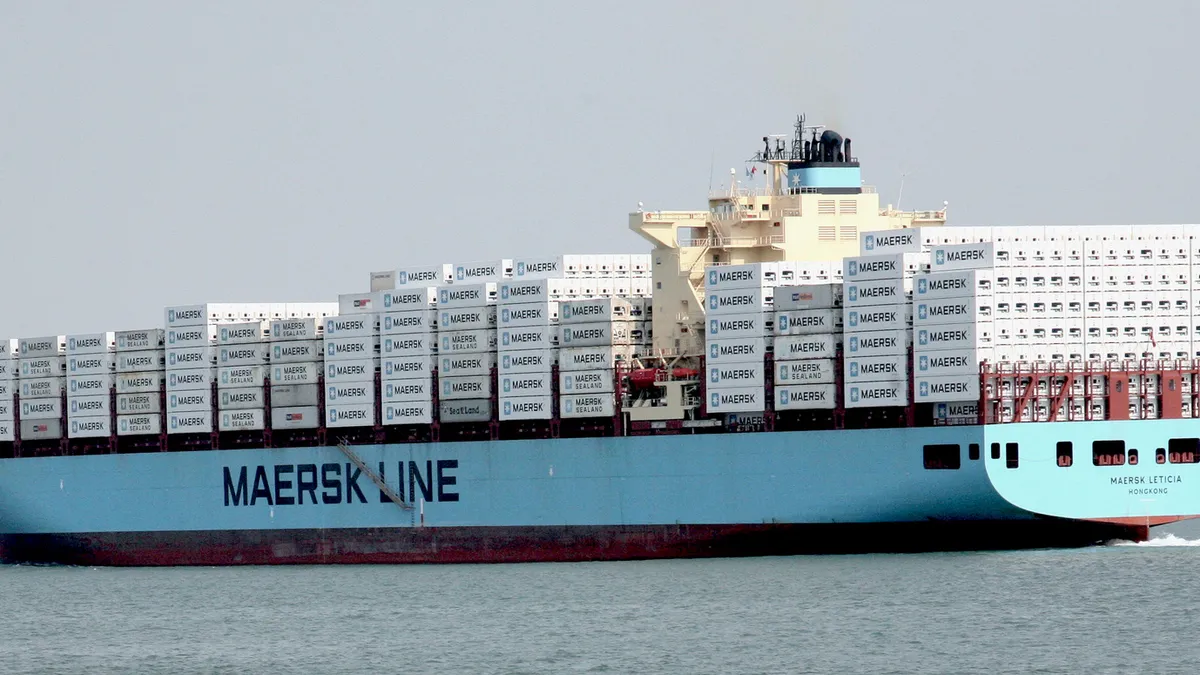Dive Brief:
- Maersk Line is experiencing a strong recovery, with Q2 2017 profits up by $500 million from Q2 2016, American Shipper reported Wednesday.
- Maersk Group CEO Soren Skou believes the financial damage of the Petya cyber attack experienced in late June and early July to be somewhere between $200 to $300 million. Approximately 70,000 TEUs worth of volume were likely absorbed by other shippers in the two weeks afterward, although Skou reports that no loss of data to any third parties occurred.
- Thanks to the average freight rate increase of 22% to $2,086 per FEU and its positive impact on revenue, the Petya costs will likely not lead to a decrease in Maersk's 2017 bottom line. The freight rate increase grew 21% to $6.1 billion in Q2.
Dive Insight:
While Maersk endured the full onslaught of the Petya cyber attack, it issued periodic updates as it worked to emerge from the debacle. Within two days, it was again able to accept bookings care of Kuehnle and Nagel; within three, it began posting statements of progress as its IT system engineers labored.
The line also proactively filed for an FMC service exemption, allowing it 20 additional days for its usual service filing contract. Though specific details regarding Maersk's filing capabilities during those additional 20 days are unavailable, chances are enough service had been restored to allow it to file in a timely fashion. Maersk was exhibiting caution, similar to how the shipping line communicated its updates, which served as optimistic warnings to its customers and throughout the industry.
Considering its first-place status as the largest shipping line in the world, Maersk demonstrated extraordinary resilience in recovering as quickly as it did. With new attacks in unseen forms descending at troubling speed on companies of all types, avoiding such sabotage is impossible: what matters is a company's ability to recover.













